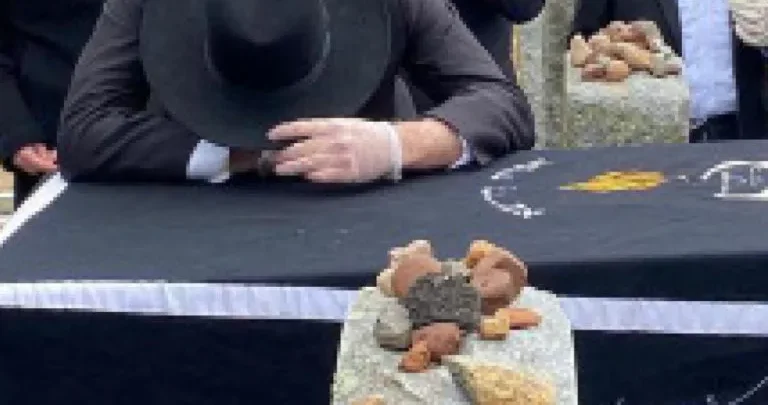
Chesed Born of Corona
April 22,2020
By Gedalia Guttenberg - Mishpacha
Since inception, the organization has buried about two thousand meisei mitzvah — those who leave no family or money to ensure a Jewish burial
The Ultimate Kindness
It’s only when you hear Rabbi Mayer Berger talk of the more than 600 taharos that Chesed Shel Emes, a large Brooklyn Chevra Kaddisha, has performed since Purim, that coronavirus’s enormity hits home.
Providing kevurah after tragedies including homicides across New York, Florida and beyond for more than two decades means that the organization is no stranger to tragedy, but COVID-19 is something Rabbi Berger describes as “heartrending.”
“We’re seeing ninety percent of taharos in Brooklyn,” he says quietly. “I would never have dreamed of doing 200 taharos in a month. It used to be rare to see a young person being niftar, but that’s what this virus is doing. So many of the people are leaving behind a young family.”
But if there’s one thing that Chesed Shel Emes volunteers try to do, it’s not to become desensitized to the human suffering despite the large numbers. “The niftarim had lives, they left yesomim, family, sometimes parents,” says Rabbi Berger. “We hate to count numbers, because that removes the value of people’s lives, but unfortunately at a time like this we have to.”
The unprecedented suffering is compounded by one of the worst aspects of the virus: the fact that patients have to be left alone in hospitals. “Some hospitals notify family, and let a couple of close relatives say goodbye, but they can’t remain in the room until they pass away. Countless people have said that the hardest thing for them has been that the grandfather who they never left alone, was alone when he was niftar,” says Rabbi Berger.
With no other choice, Chesed Shel Emes have arranged that the Shema and Sheimos that would normally be said with a minyan at a person’s passing, are at least said over a phone. “We normally send a minyan. Now the only thing that we can do is by phone; we have a number so that patients can hear the Yichud,” says Rabbi Berger.
Chesed Shel Emes may operate out of New York in 2020, but its name — and voluntary ethos — originates with Yaakov Avinu thousands of years ago. Since inception, the organization has buried about two thousand meisei mitzvah — those who leave no family or money to ensure a Jewish burial. Since coronavirus hit New York, that number has grown by another thirty-two.
But there’s another aspect of their name that the organization implements: With many prevented from burying their loved ones in Israel, and the option of temporary burial in the US prohibitively expensive for some, the organization puts that option within the range of those who can’t afford it.
In very dark times, that’s the ultimate kindness.
